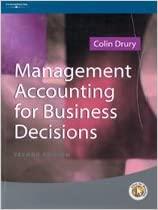Answered step by step
Verified Expert Solution
Question
1 Approved Answer
Case Study: Tax Consequences of Trading Stocks and Securities John is an individual investor who actively trades stocks and securities in the financial markets. Over
Case Study: Tax Consequences of Trading Stocks and Securities
John is an individual investor who actively trades stocks and securities in the financial markets. Over the past year, John has executed numerous buy and sell transactions, aiming to profit from shortterm price fluctuations in the market. As tax season approaches, John is concerned about the tax implications of his trading activities and seeks guidance on how his trading profits and losses will be taxed.
Firstly, John needs to understand the classification of his trading activities for tax purposes. The Internal Revenue Service IRS distinguishes between two types of investors: traders and investors. Traders are individuals who engage in buying and selling securities for the purpose of generating shortterm profits, while investors typically hold securities for longer periods with the goal of longterm appreciation.
Since John actively trades stocks and securities with the intention of profiting from shortterm price movements, he is classified as a trader by the IRS. As a trader, John will report his trading gains and losses on Schedule C of his tax return, similar to a business owner reporting business income and expenses.
The tax consequences of John's trading activities depend on whether his trading is classified as a business or as investment activity. If his trading is considered a business, John may be eligible to deduct tradingrelated expenses such as brokerage fees, platform subscriptions, and trading software costs. These deductions can help reduce his taxable income, thereby lowering his overall tax liability.
However, if John's trading is deemed to be investment activity rather than a business, he will report his trading gains and losses on Schedule D of his tax return. In this case, his trading losses may be subject to limitations imposed by the IRS, such as the washsale rule, which disallows the deduction of losses from the sale of securities if substantially identical securities are repurchased within days before or after the sale.
Additionally, regardless of whether John's trading is classified as a business or investment activity, his trading profits will be subject to taxation at either shortterm or longterm capital gains rates, depending on the holding period of the securities Shortterm capital gains, arising from securities held for one year or less, are taxed at ordinary income tax rates, which can be higher than longterm capital gains rates. On the other hand, longterm capital gains, from securities held for more than one year, are taxed at preferential rates, typically lower than ordinary income tax rates.
Objective Type Question:
What tax form would John use to report his trading gains and losses if his trading activities are classified as a business?
A Schedule A
B Schedule B
C Schedule C
D Schedule D

Step by Step Solution
There are 3 Steps involved in it
Step: 1

Get Instant Access to Expert-Tailored Solutions
See step-by-step solutions with expert insights and AI powered tools for academic success
Step: 2

Step: 3

Ace Your Homework with AI
Get the answers you need in no time with our AI-driven, step-by-step assistance
Get Started


